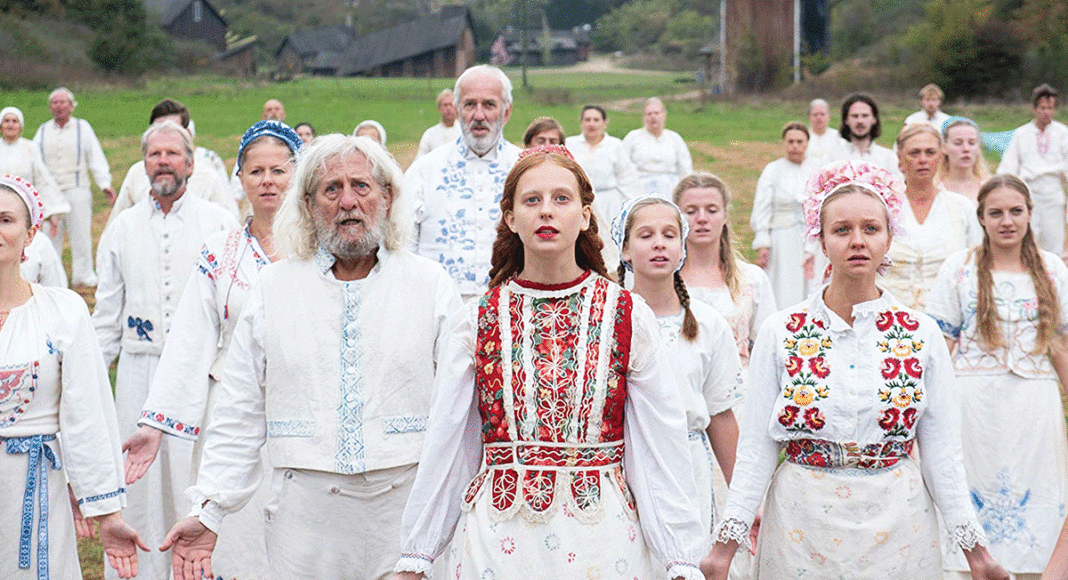Years ago, Nightmare on Elm Street director Wes Craven told me that a horror movie can only really work if the audience doesn’t trust its director. One way or another, he said, the movie has to create the feeling that it was made by someone unwilling or unable to control his or her own worst impulses.
He had that experience for the first time himself when he went to see The Texas Chainsaw Massacre as a young man in the ’70s. The movie was so straight-up insane that he thought it might have been made by some deranged satanic cult, and he actually felt unsafe sitting in the theater, worrying about what these imagined fiends might force him to see. He spent most of his career trying to create that same fear in the audiences that went to his own films.
No one is going to confuse writer-director Ari Aster’s new film Midsommar with The Texas Chainsaw Massacre. It doesn’t have a single jump scare, or even suspenseful sequence, really. It isn’t scary, in the traditional sense. And yet the oppressive, constant sense of dread, punctuated by a string of increasingly extreme shocks, creates one of the most effective feats of true cinematic horror to come along in quite some time. As the grotesqueries of the story begin to evolve from disturbing to downright absurd, Aster revels in forcing the audience to look at their absurdity. He is Craven’s untrustworthy director to the nth degree, willing to slam his audience from gorgeous, pristine art-movie landscapes one moment to twisted dives into the darkest human impulses the next. Midsommar does not play fair with us, because Aster has no interest in playing fair. And yet, I doubt he would agree with anyone who calls the movie cynical; there’s a pitch-black earnestness to the whole thing that suggests Aster is interested not in creating pointless shocks, but in revealing some unpleasant truths about life, the universe and everything.
The film is set in a small Swedish community, to which a group of Americans have traveled to observe a midsummer festival. The first thing worth noting about this group is that they clearly have not seen the 1973 cult-horror classic The Wicker Man, in which a foreigner gets suckered into being a human sacrifice for a pagan ritual. Not even the terrible Nic Cage remake, apparently! Obviously, Midsommar owes a huge debt to the original Wicker Man—sometimes a bit too much, even. But this film is even darker.
The second thing about the group—and in fact, everyone in the film—is that they are remarkably unlikable, even the main visiting couple, Dani (Florence Pugh) and Christian (Jack Reymor). If you’re one of those people who simply can’t watch a film where there’s no one to root for, this is probably not for you. But if you can get over it, the characterizations here are both audacious and effective, the interpersonal tensions realistic and relatable. As Aster slowly, purposefully takes Midsommar completely off the rails, the believability established by the cast is of the utmost importance. We stay on board because we’re invested in their tragic, awful and tragically awful relationships, and in their fates.
There will no doubt be many a future college thesis theorizing about what Aster is saying here, and they will make for some bleak reading. This film rejects the popular notion that anything dubbed “ancient” or “natural” is healthy and good, but it also hates the jittery, self-obsessed modern world. It is anti-religion, anti-organization, anti-individual, anti-relationship, and anti-culture. It is anti-life, and hell, it may even be pro-suicide, I can’t even tell. If you think that sounds dangerous, than you’re starting to understand why Wes Craven was right, and why Midsommar is such a powerful horror film.
MIDSOMMAR
Written and directed by Ari Aster. Starring Florence Pugh and Jack Reymor. (R) 147 minutes.












